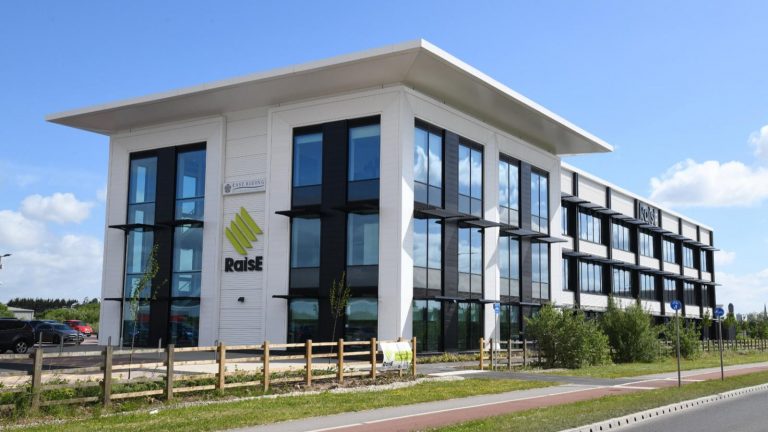East Riding Councillors have given the green light for 173 new homes in the village of Elloughton.
Planning committee members voted unanimously to approve plans from York-based housebuilder Persimmon for a mix of homes on land off Welton Low Road. The land is allocated for housing in the East Riding Local Plan. A mix of homes will be provided including bungalows and houses ranging from 1 to 4 bed properties. 26 of the new homes will be transferred to a registered housing provider. All properties will be fitted solar panels and EV chargers. Residents will also benefit from over 2.5 acres of public open space which will include the retention and enhancement of the Roman road with information boards detailing the history of the road. The developer is contributing over half a million pounds of funding in the local area including money towards education and two new football pitches to be given to the Council. Graham Whiteford, planning director at Persimmon Yorkshire, said: “We’re pleased that Councillors have approved these plans for high quality new homes for local people. “We look forward to continuing to work with the Council, local stakeholders and residents as these plans progress.”audioadpro makes trio of hires
Simpson Millar appoints head of business development
Thurston Group restructures team
npower Business Solutions Foundation boosts funding to £10 million for local causes
npower Business Solutions (nBS) has announced an additional £5 million investment in its community fund, the nBS Foundation, bringing the total amount to £10 million. This commitment is aimed at supporting not-for-profit organisations in Yorkshire, a key region for the energy provider.
Launched in 2024, the nBS Foundation provides grants of up to £100,000 to organisations located within 50 miles of Leeds and Dewsbury. The foundation has already funded 43 local projects, including those addressing domestic abuse, sustainability initiatives such as solar panel installations, and support for electric vehicle programmes. The fund focuses on empowering organisations that seek to drive long-term positive change in their communities.
The additional £5 million will further assist projects dedicated to sustainability, job creation, and social innovation. Organisations interested in receiving support can submit applications through Charis Grants, an independent entity that manages the allocation process.
Leeds Building Society relaxes affordability tests, boosting borrowing capacity by £34,000
Leeds Building Society has adjusted its affordability stress tests, allowing homebuyers to borrow up to an additional £34,000. This change, effective from tomorrow, will apply to first-time buyers, home movers, and remortgagers, with typical applicants able to borrow between £9,000 and £34,000 more.
The lender is reducing stress testing rates by up to 1.24%, following similar moves by other major institutions like Barclays, Nationwide, NatWest, Lloyds Banking Group, Santander, Hodge, and Accord Mortgages, all of which have recently relaxed their borrowing criteria.
This shift in lending policies comes in response to feedback from the Financial Conduct Authority (FCA), which earlier this year noted that lenders had been overly cautious in their affordability assessments, particularly for first-time buyers. The FCA has since clarified that there is flexibility within existing rules, which lenders have now started to utilise more effectively.
Leeds Building Society’s decision is aimed at increasing support for individuals looking to enter the property market, aligning with broader government goals to boost growth in the housing sector.
Shipley car cover manufacturer secures grant funding
East Riding businesses benefit from £1.5 million in grants and expert support
East Riding businesses have received a boost through £1.5 million in grants and a range of tailored support programmes, driven by the East Riding of Yorkshire Council (ERYC). These initiatives, funded by the UK Shared Prosperity Fund (UKSPF) and the Rural England Prosperity Fund (REPF), aim to support local businesses across various sectors.
The Invest East Yorkshire Business Support Services, a key element of ERYC’s offering, has been instrumental in delivering this support. The services include expert advice, networking opportunities, and workshops on key topics such as sustainability, tourism, and supply chain management. In partnership with local universities, government agencies, and private sector organisations, the team has ensured that assistance reaches businesses throughout the region, with a special focus on Bridlington and Goole.
In total, 189 businesses have secured over £1.5 million in grant funding, leading to the creation of 161 new jobs. In addition, nearly 1,500 businesses have benefited from direct support, with 207 entrepreneurs becoming business-ready and 45 new ventures established. This initiative highlights the region’s dedication to promoting business growth and innovation.
Partnership boosts rail telecoms with new infrastructure investment
A strategic partnership between Network Rail, Freshwave, and Neos Networks aims to improve the UK’s rail telecoms network by eliminating signal blackspots and modernising the infrastructure. Neos Networks will be responsible for deploying 1,000 kilometres of fibre optic cable along key railway lines, including the East Coast Main Line, Chiltern Main Line, and West Coast Main Line. The initiative will also commercialise spare fibre capacity, creating a robust digital connectivity backbone for businesses. The partners have plans to extend this network to over 5,000 kilometres in the future.
The collaboration addresses the growing demand for high-performance digital infrastructure, driven by factors such as AI growth and data centre capacity. Freshwave will address signal gaps by deploying mobile infrastructure in 57 tunnels along major rail routes, including the 4 km-long Chipping Sodbury tunnel. Mobile connectivity will also be enhanced at 12 key stations, such as Birmingham New Street, Glasgow Central, and King’s Cross, with installations expected to begin in 2026.
These upgrades are crucial for improving Network Rail’s asset monitoring capabilities and enabling advanced technologies like trackside sensors and CCTV. The enhanced network is expected to bring long-term economic benefits, contributing to the UK’s digital future and supporting the formation of Great British Railways.












